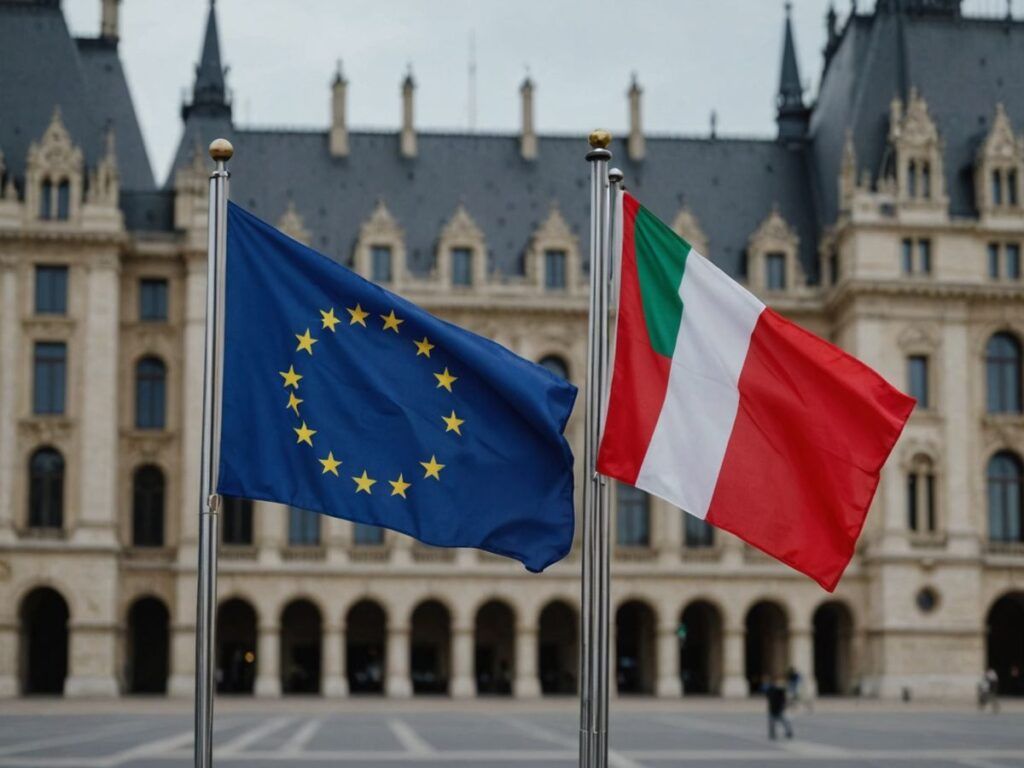Far-right parties from 12 countries, including France’s National Rally and Hungary’s ruling Fidesz, have announced the formation of a new bloc in the European Parliament. Dubbed Patriots for Europe, this coalition aims to become a major political force, shifting the balance of power in the EU’s legislative body.
Key Takeaways
- Formation of Patriots for Europe: A new far-right bloc in the European Parliament.
- Leadership: Jordan Bardella of France’s National Rally and Kinga Gál from Hungary’s Fidesz.
- Member Countries: Includes parties from Austria, Belgium, Czech Republic, Denmark, Greece, Italy, Latvia, Netherlands, Portugal, and Spain.
- Political Influence: The bloc aims to gain more influence, funding, and key parliamentary posts.
- Opposition to Centralization: The group opposes centralized power in Brussels and the European Commission.
- Mainstream Resistance: Mainstream parties may block the new group from key posts.
Formation of Patriots for Europe
The European Parliament has seen a significant shift to the right following recent elections, with many voters moving away from business-friendly liberals and environmentalist Greens. Mainstream center-right and center-left groups still hold the majority, but the new far-right bloc, Patriots for Europe, is poised to become a significant player.
Leadership and Membership
The Patriots for Europe bloc is composed of 84 EU lawmakers and will be led by Jordan Bardella, a 28-year-old protégé of Marine Le Pen. Kinga Gál, from Hungarian Prime Minister Viktor Orbán’s Fidesz party, will serve as the first vice president. The coalition includes right-wing parties from Austria, Belgium, the Czech Republic, Denmark, Greece, Italy, Latvia, the Netherlands, Portugal, and Spain.
Political Influence and Goals
Forming a group in the European Parliament brings parties more influence, funding, and the possibility of coveted posts on parliamentary committees. Italy’s far-right League party, the Party for Freedom led by anti-immigration Dutch leader Geert Wilders, and Spain’s far-right Vox party are among the notable members. Bardella stated that the Patriots “represent hope for the tens of millions of citizens in the European nations who value their identity, their sovereignty, and their freedom.”
Opposition to Centralization
At a news conference, senior party officials outlined their vision for a group that opposes centralized power in Brussels, home to the EU’s main institutions, and the “diktats of the European Commission,” the EU’s powerful executive branch. Gál emphasized that voters want Europe’s borders better protected from migrants and that citizens favor European cooperation but not an EU that overreaches its competences and punishes member states for their policies.
Mainstream Resistance
The Patriots for Europe claims to be the third-largest political group in the parliament, although the conservative European People’s Party and the Socialists and Democrats hold more seats. The question remains whether mainstream parties will prevent the new group from taking up important posts by refusing to endorse its candidates, a tactic previously used against the National Rally when it was part of the far-right Identity and Democracy group.
In a possible sign of future conflicts, the liberal Renew group criticized the Patriots for Europe, stating that they are “patriots in name only” and accusing them of rebranding to destroy European values. Bardella’s ally, Jean-Paul Garraud, called such blocking tactics “totally anti-democratic” and insisted that the Patriots for Europe must be given the number of posts corresponding to the millions of voters they represent.
Sources
- Far-right groups from France and Hungary to lead a new political force in the European Parliament – Queen City News, Queen City News.
- Far-right groups from France and Hungary to lead a new political force in the European Parliament | KTLA, KTLA.
- Far-right groups from France and Hungary to lead a new political force in the European Parliament, Bay News 9.
- Far-right groups from France and Hungary to lead a new political force in the European Parliament | Daily Independent, Your Valley.
